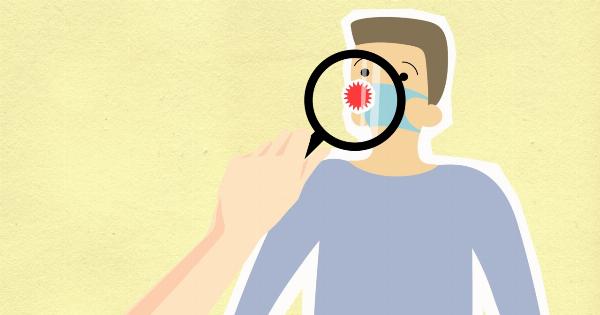Contraceptives play a crucial role in family planning and are used by millions of people worldwide. However, it’s important to be aware that certain medications and substances can interfere with the effectiveness of contraceptives.
These drug interactions can lead to reduced contraceptive efficacy, potentially resulting in unintended pregnancies. It is essential for individuals to have a comprehensive understanding of these interactions to ensure the optimal use of contraceptives.
1. Antibiotics
Antibiotics are commonly prescribed to treat various infections. However, some antibiotics, such as rifampin and griseofulvin, have been found to decrease the effectiveness of hormonal contraceptives like birth control pills.
These antibiotics may induce enzymes in the liver that can accelerate the breakdown of hormones, reducing their concentration in the body. Therefore, it is recommended to use alternative contraceptive methods, such as condoms, during antibiotic treatment.
2. Antiepileptic Drugs
Antiepileptic drugs (AEDs) are medications used to treat seizures and epilepsy. Certain AEDs, including phenytoin, carbamazepine, and topiramate, are known to interact with hormonal contraceptives.
These drugs can increase the metabolism of hormones and change their levels in the body, potentially reducing contraceptive efficacy. It is advisable for individuals taking AEDs to discuss alternative contraceptive options with their healthcare provider.
3. Antiretroviral Medications
Antiretroviral medications are used to manage HIV/AIDS and prevent its progression. Some antiretroviral drugs, such as ritonavir and efavirenz, can interact with hormonal contraceptives.
These interactions can affect the metabolism of hormones, potentially reducing their effectiveness. It is crucial for individuals living with HIV/AIDS to consult their healthcare provider regarding suitable contraceptive options that are not affected by antiretroviral medications.
4. St. John’s Wort
St. John’s Wort is a herbal supplement commonly used for the treatment of depression and anxiety. However, it can also induce enzymes in the liver that metabolize hormones.
This can lead to a decrease in hormone levels and result in reduced contraceptive effectiveness. It is advisable to avoid using hormonal contraceptives while taking St. John’s Wort or to explore alternative methods of contraception.
5. Antifungal Medications
Antifungal medications, such as ketoconazole and itraconazole, are prescribed to treat fungal infections. These medications can interfere with the metabolism of hormones, potentially reducing their effectiveness as contraceptives.
Individuals using hormonal contraceptives should consult their healthcare provider if antifungal treatment is necessary to determine the need for additional contraceptive measures.
6. Herbal Supplements
Various herbal supplements, including Dong Quai, Black Cohosh, and Ginkgo biloba, have been reported to interfere with hormonal contraceptives.
These supplements may affect hormone levels or induce liver enzymes that metabolize hormones, diminishing contraceptive efficacy. If considering the use of herbal supplements, it is essential to discuss their potential interactions with contraceptives with a healthcare provider.
7. Antidepressants
Specific antidepressant medications, such as selective serotonin reuptake inhibitors (SSRIs) and tricyclic antidepressants (TCAs), may interact with hormonal contraceptives.
These interactions can potentially reduce the effectiveness of contraceptives by altering hormone levels. Individuals taking antidepressants should have a conversation with their healthcare provider to determine appropriate contraceptive options.
8. Antihistamines
Antihistamines are commonly used to manage allergies and relieve symptoms like runny nose and sneezing.
While antihistamines themselves do not directly impact contraceptive efficacy, the sedative effects of some antihistamines can reduce adherence to contraceptive schedules and increase the likelihood of missed doses. It is important to be mindful of maintaining proper contraceptive usage even when using antihistamines.
9. Steroids
Corticosteroids and anabolic steroids, often prescribed for various medical conditions or used for performance enhancement, are not known to directly affect hormonal contraceptives.
However, high doses and prolonged use of steroids can disrupt the regular menstrual cycle, which may increase the risk of unintended pregnancy. It is advisable to discuss contraceptive options with a healthcare provider when using steroids for an extended period.
10. Antacids
Antacids, including medications like aluminum hydroxide and magnesium hydroxide, are used to relieve symptoms of indigestion and heartburn.
While antacids do not directly interfere with hormonal contraceptives, they can potentially reduce absorption of contraceptive hormones when taken concurrently. It is recommended to administer hormonal contraceptives and antacids at different times, with guidance from a healthcare provider.






























